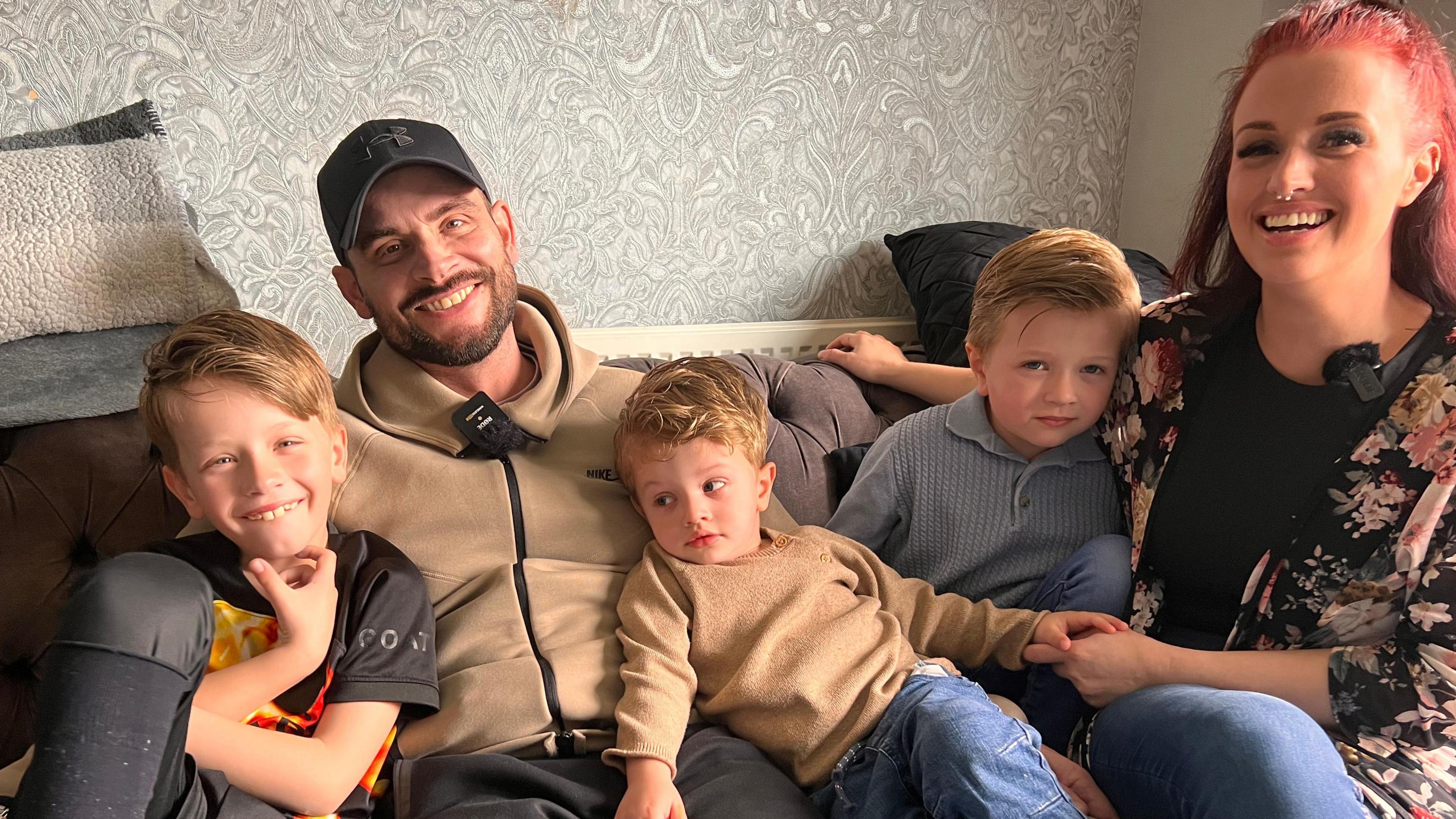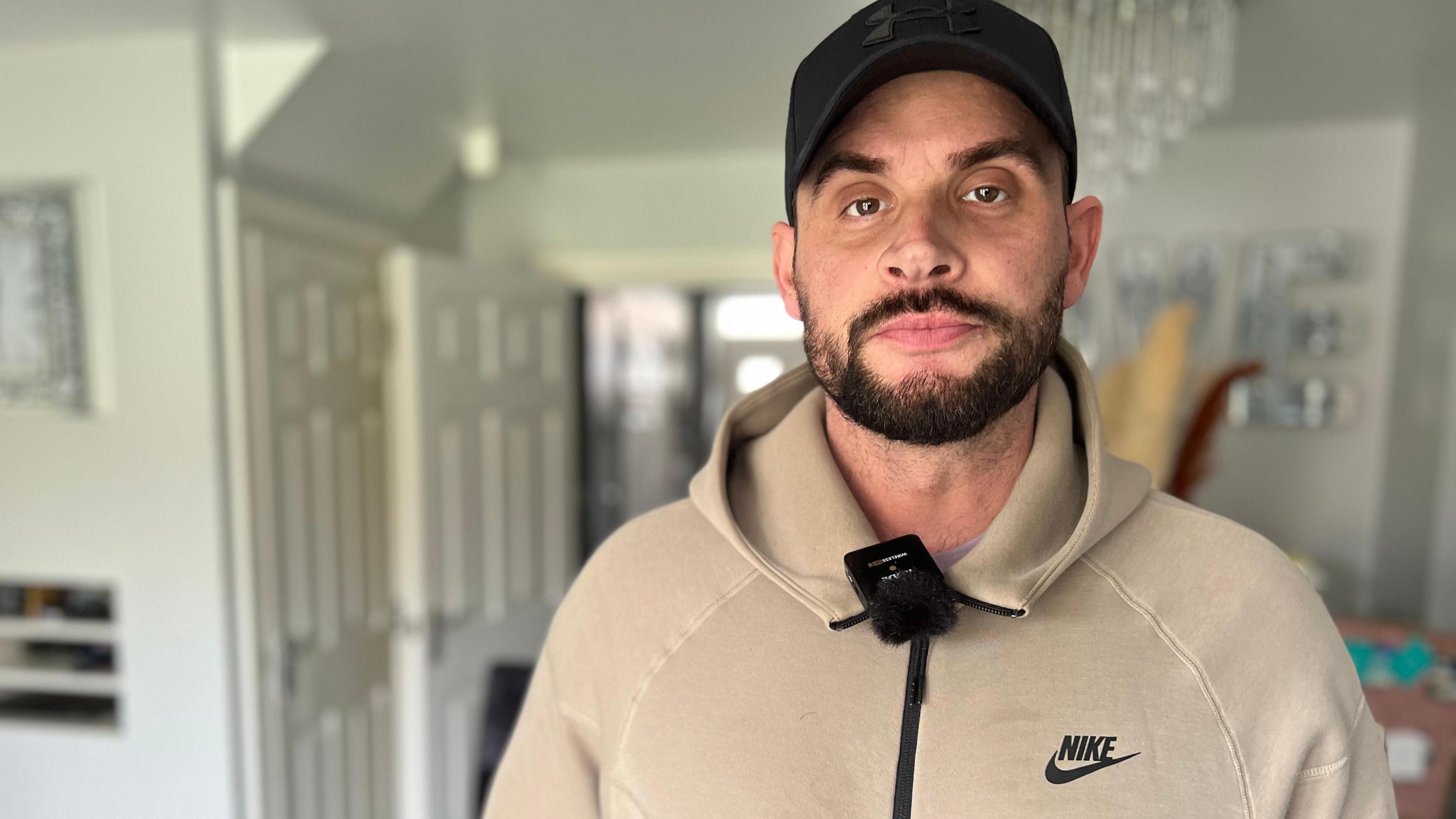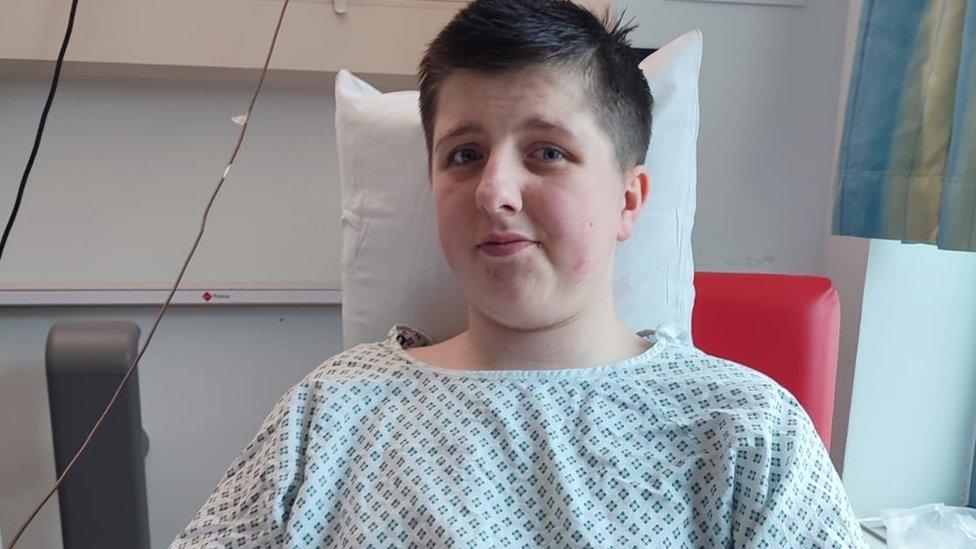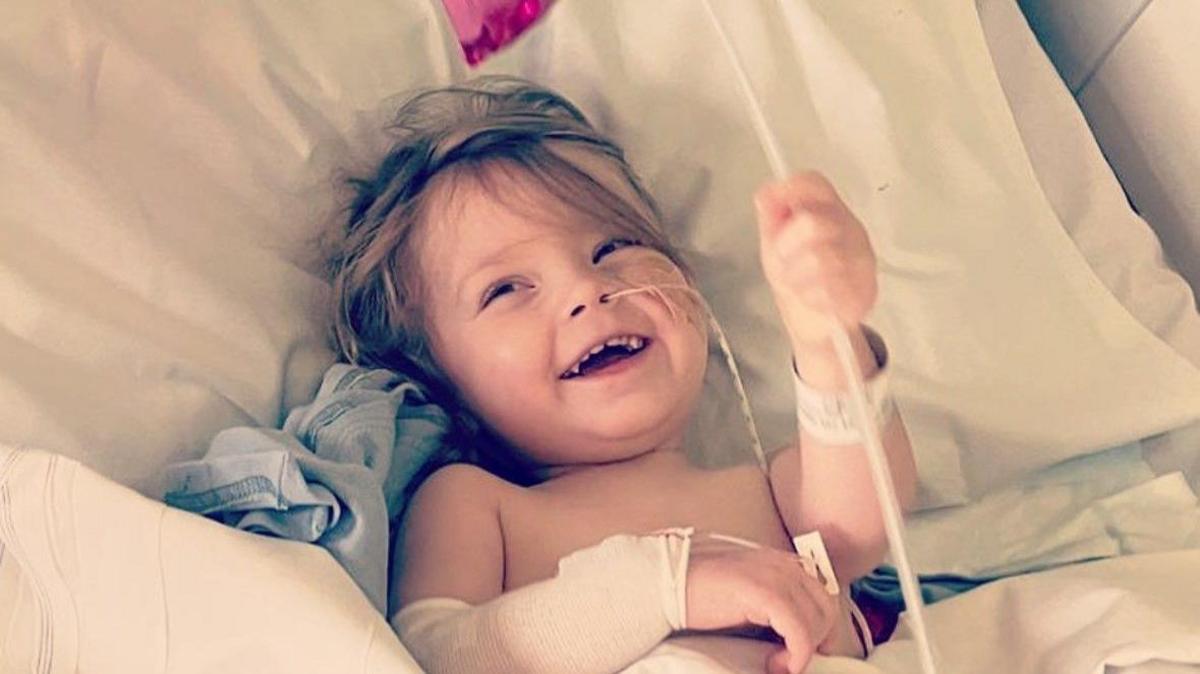Nearly £100k raised for dad with inoperable tumour

Rick Smith hopes to go abroad for cell therapy treatment
- Published
Almost £100,000 has been raised for a Kent dad's cancer treatment after an eye test revealed he had an inoperable brain tumour.
Rick Smith, 39, from Sheppey, was diagnosed with an astrocytoma on 11 March, four weeks after starting to experience headaches.
His fiancée, Katrina Binfield, booked an appointment with an optician, believing he might be suffering from eye strain.
He described the response to the fundraiser, to pay for private cell therapy treatment abroad, as "amazing".
The dad-of-four began experiencing headaches mid-February.
"I was driving along and then all of a sudden I could feel it coming on," he said. "I would have to pull over."
When he went for the eye test, alarm bells were quickly raised.
"Straight away they said 'look Ricky, we've found something behind both eyes, we can see bleeding'," said Ms Binfield.
He was given a same-day referral to Maidstone Hospital, before being referred to King's College Hospital in London.

Ms Binfield said her fiance had cried at some of the messages from wellwishers
'Best possible outcomes'
Doctors originally diagnosed Mr Smith with a butterfly glioblastoma tumour, telling him it was inoperable and he would have about 15 months to live.
A biopsy later revealed the tumour to be an inoperable astrocytoma.
The couple said they were offered radiotherapy and chemotherapy by the NHS, and have decided to pay for private cell therapy treatment abroad.
"It's a lot of money but we want the best treatment for Ricky with the best possible outcomes, with [him] being the least sick," said Ms Binfield.
Family friend Alissa Triance set up a GoFundMe page to help pay for Mr Smith's treatment and has raised more than £97,000.
"We feel really privileged that people are supporting Ricky with the journey," added Ms Binfield, who has also set up a TikTok account to document their experience.
Dr Catherine Pickworth, research impact manager at Cancer Research UK, said symptoms of brain tumours could vary, and included drowsiness and sickness.
She emphasised the importance of early diagnosis.
"I think it's about knowing what's normal for you and going to see your GP when you notice that something's not right," she said.
She encouraged people not to be "afraid" to go back their doctor if they find that their problem does not resolve.
Follow BBC Kent on Facebook, external, on X, external, and on Instagram, external. Send your story ideas to southeasttoday@bbc.co.uk or WhatsApp us on 08081 002250.
Related topics
- Published24 February 2024

- Published25 March 2024

- Published2 April 2024
